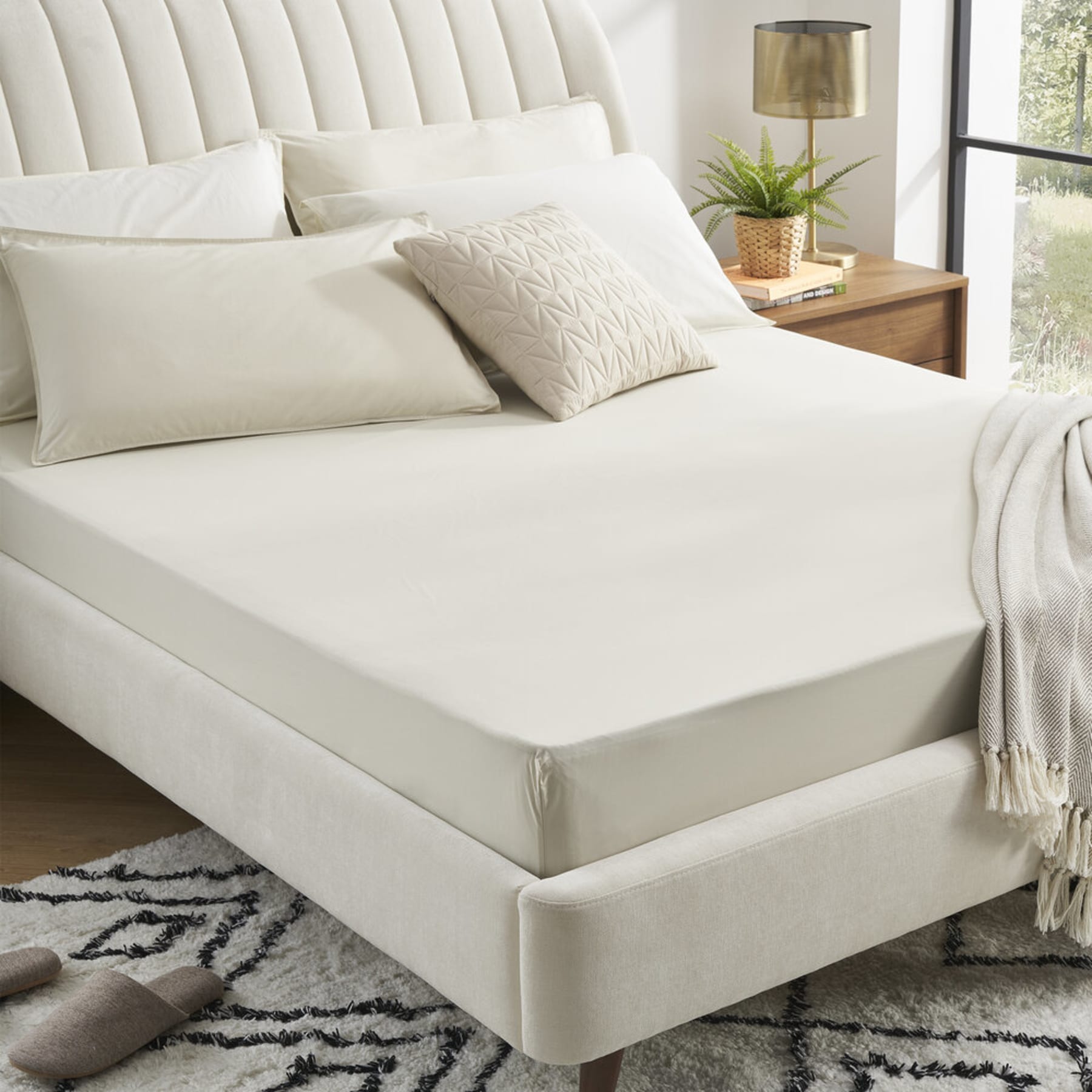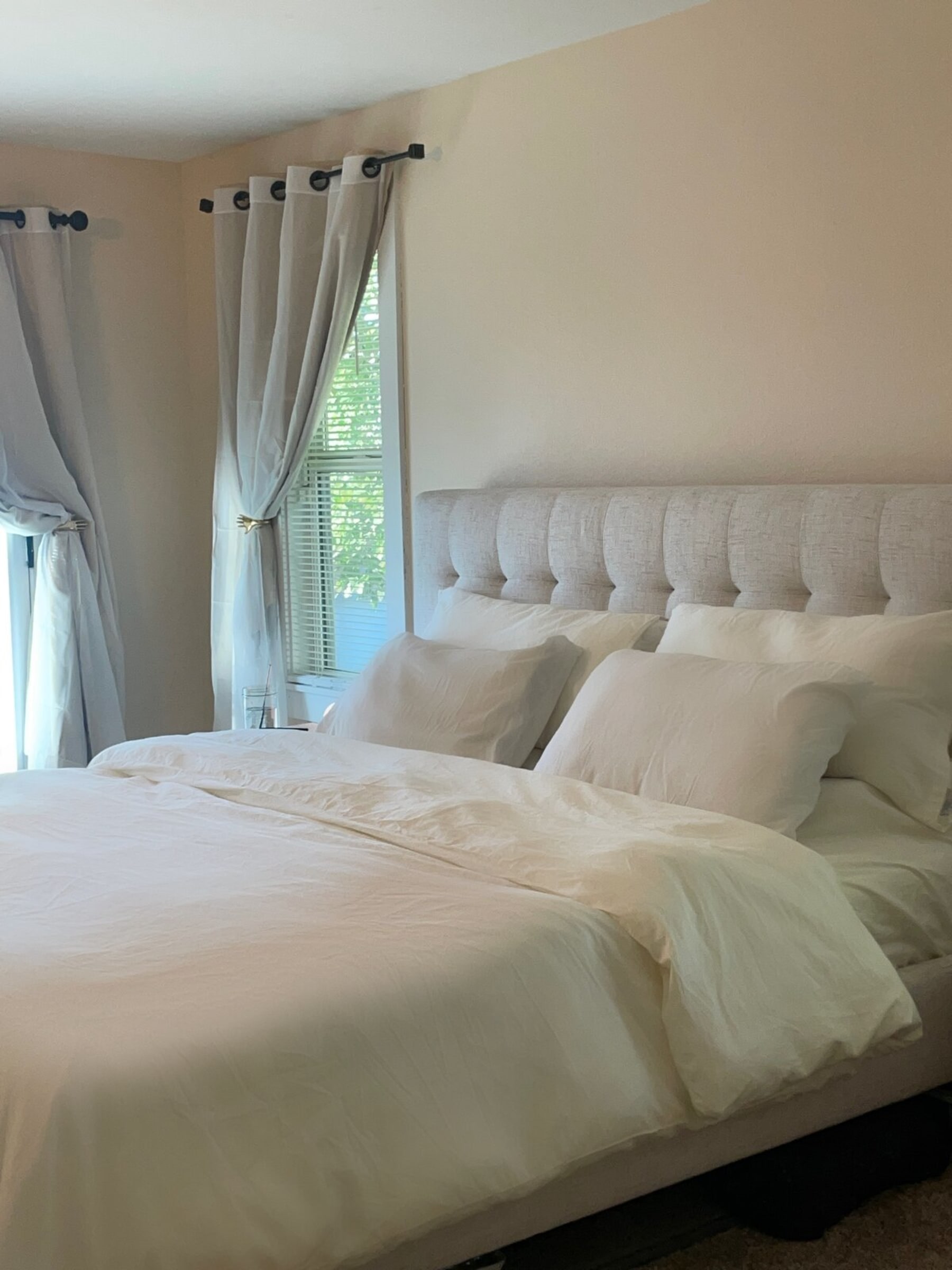
Why Do Sheets Pill and How Do I Prevent It?
Do you struggle with your bed sheets looking worn out and feeling rough? One of the most common (and frustrating) issues people face with their bedding is pilling.
Pilling occurs when tiny balls of fiber form on the surface of your sheets, giving them a rough and worn-out appearance. In this article, we will discuss why sheets pill and how you can prevent it from happening.
Why do sheets pill?
Before we dive into prevention methods, it's important to understand why sheets pill in the first place. There are several factors that contribute to pilling, including:
Poor quality fabric
Poor quality fabric is one of the main culprits behind pilling sheets. When we say "poor quality", we're typically referring to sheets that are made from synthetic fibers like polyester or blends that have a low percentage of natural fibers like cotton. These materials tend to be less durable and prone to pilling because the fibers are shorter and more likely to break or loosen over time.
In contrast, high-quality fabrics like Egyptian cotton, Supima cotton, or bamboo are less likely to pill because they have longer fibers that are less prone to breakage.
It's worth noting that not all synthetic fibers are created equal - some blends like microfiber or Tencel can be more durable and resistant to pilling than others.
Excessive friction
When your sheets rub against each other or other fabrics, it can cause friction that leads to pilling. This causes the fibers to break or loosen and form tiny balls on the surface of the fabric.
There are several factors that can contribute to excessive friction, including the type of bedding you use, how you wash and dry your sheets, and even your sleeping position. Furthermore, any rough surfaces like spiky body hair or calloused feet can also create more friction.
For example, if you use flannel sheets or heavy blankets, these fabrics can rub against your sheets and cause friction that leads to pilling.
Harsh detergents
Using harsh detergents or fabric softeners can damage the fibers in your sheets and cause them to break down over time.
When you use harsh detergents, the chemicals can strip away the natural oils and protective coatings on your sheets, leaving them more vulnerable to wear and tear. This can make them more likely to pill, especially if they are already made from lower-quality materials.
High heat
Using high heat when drying your bed sheets is another factor that can contribute to pilling. When you expose your sheets to high heat in the dryer, it can cause the fibers to become brittle and more prone to breakage. This can lead to pilling, as the broken fibers on the surface of the sheets begin to ball up and form little knots.
How to prevent pilling on sheets
Invest in high-quality sheets
As pilling is often a result of poor-quality fabric, investing in high-quality sheets is a good way to prevent pilling. Bed sheets made from fabrics like Egyptian cotton, Supima, or bamboo have longer fibers that are less prone to breakage and pilling.
In addition to the type of fiber used, the thread count and weave of your sheets can also impact their quality and durability. A higher thread count typically means that the sheets are made from finer and more tightly woven fibers, which can help prevent pilling and ensure that your sheets stay soft and comfortable over time. Similarly, a percale weave is generally considered more durable than a sateen weave, as it is less likely to snag or pill.

The Percale Sheet Set in Wheat on the Lexi Tufted Bed.
While investing in high-quality sheets may require a larger up-front investment, it can ultimately save you money in the long run by reducing the need to replace your bedding frequently.
Wash your sheets properly
Pay attention to the way you wash your sheets and the proper care needed for each type of bed sheet.
As mentioned earlier, a harsh detergent can weaken the fibers in your sheets. Hence, use a mild detergent when washing your bed sheets. Run the cycle at a gentle speed and use cold water to reduce damage to the fibers and agitation in the washing machine.
Also, avoid adding fabric softeners as they can leave a residue on your sheets and cause pilling. Instead, try using vinegar or baking soda as a natural fabric softener (they won’t leave a smell!).
Lastly, dry your sheets on a low heat setting or consider air-drying them if possible.
Separate your laundry
Just like how you separate the whites from the colored clothing, wash your sheets separately from other fabrics like your blankets or duvets, and other items in your laundry like towels or jeans.
This can help reduce the amount of friction that your sheets are exposed to, which helps to maintain the softness and prevent pilling.

@savannahlynch uses the Sateen Duvet Sheet Set on the Madison Bed.
Use a fabric shaver or lint roller
If your sheets have started to pill, don’t throw them out! They’re not a lost cause. Simply use a fabric shaver or lint roller to gently comb the surface of your sheets to remove the pills.
Be sure to follow the bed sheet manufacturer's instructions carefully and use caution to avoid damaging your sheets. It's also important to use a fabric shaver only on dry sheets, as using it on damp or wet fabric can cause damage.
Swap your sheets
Finally, it's a good idea to alternate your sheets regularly. When you sleep on your sheets night after night, the fibers in the areas where you sleep can break down more quickly than in other areas. This can lead to pilling, as the broken fibers begin to ball up on the surface of the fabric due to friction.
To prevent this, swap out the sheets on your bed and use a different set, before rotating back to the original set. This will help to distribute the wear and tear evenly, reducing the risk of pilling.
Pilling sheets can be a frustrating problem, but it's not inevitable. By investing in high-quality sheets, washing them properly, and taking good care of them, you can prevent pilling from happening.
If your sheets do start to pill, don't panic - simply use a fabric shaver to remove the pills, and your sheets will look as good as new. With these tips in mind, you can enjoy soft, comfortable, and pill-free sheets for years to come.
FAQs
Do bamboo and microfiber sheets pill?
The likelihood of bamboo or microfiber sheets pilling can vary depending on the quality of the fabric and the care with which they are washed and dried. Bamboo sheets are known for their softness and durability. As they are made from long-staple fibers and woven tightly, they are less prone to pilling. Microfiber is made from polyester fibers that are extremely fine and tightly woven, which means that there are fewer loose fibers on the surface of the fabric. Hence, they are also less likely to pill.
But do note that these two materials may still pill over time with frequent use and washing.
What sheets don't pill?
No fabric is completely immune to pilling, as even the highest quality sheets can develop pills with frequent use and washing. However, some fabrics like linen, long-staple cotton, silk, and Tencel are less likely to pill than others due to their strong and durable fibers.